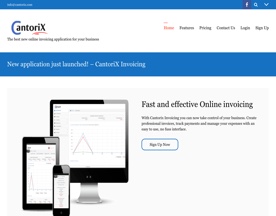Hey there, dear reader! So, you’ve found yourself pondering one of the most significant questions in the modern business world: should you outsource your own bookkeeping process? And it’s not a surprise. With the ever-changing dynamics of business operations and accounting services and the constant strive for efficiency, outsourced bookkeeping has become a buzzword, and for good reasons. But, before we delve into the depths of this topic, let’s set the stage.
Imagine the hustle and bustle of a typical business day. The phone is ringing off the hook, emails are pouring in, there’s that big client meeting in the afternoon, and oh, the quarterly reports are due next week. Amidst all this, there’s the ever-present task of bookkeeping. Tracking every penny, ensuring compliance, managing payroll, handling taxes – it’s a lot. If you’re a small business owner or an entrepreneur wearing multiple hats, you know the drill. The weight of these responsibilities can be overwhelming, and sometimes, crucial to accurate financial reporting, information and details might slip through the cracks.
Outsourced a bookkeeping service can be a game-changer for many businesses, providing expertise, cost savings, and more. Discover just how outsourced bookkeeping works and it can benefit you and what to consider before making the leap.

Enter outsourced bookkeeping – the superhero in the world of numbers, financial reports, payroll taxes and ledgers. Instead of juggling these tasks in-house, businesses are now looking towards external experts to handle them. This approach isn’t just about delegation; it’s about optimization. It’s about ensuring that your business’s financial backbone is strong, accurate, and up-to-date, without you having to lose sleep over it.
But, as with every superhero, there’s a backstory, and that’s what we’re here to explore. What led to the rise of outsourced bookkeeping services? Why are businesses, from startups to conglomerates, considering this option? Is it truly the golden ticket to efficiency, or is there more to the story?
Over the next sections, we’ll embark on a journey to understand outsourced bookkeeping inside out. We’ll look at its benefits, potential pitfalls, and the various nuances that come into play in house an outsourced bookkeeper either. By the end of this guide, my aim is to equip you with all the knowledge you need to make an informed decision for your business. So, whether you’re a seasoned entrepreneur or someone just starting, this guide promises insights for everyone.
Key points:
- The modern business landscape is dynamic, leading to the need for efficient operations.
- Bookkeeping, while crucial, can be overwhelming and time-consuming.
- Outsourced bookkeeping has emerged as a solution, promising expertise and optimization.
- This guide aims to provide a comprehensive understanding, helping businesses make informed decisions.

What is Outsourced Bookkeeping? A Deep Dive
Alright, let’s get to the heart of the matter. Outsourced bookkeeping works with online bookkeeping service. It sounds fancy, but what does it truly entail?
At its core, outsourced bookkeeping and accounting is the practice of delegating the responsibility of managing your company’s financial records and financial transactions, to an external party or agency. It’s like handing over the reins of your financial chariot to a trusted charioteer, hoping they’ll steer it right. But, there’s more to it than just handing over responsibilities.
The Landscape of Outsourced Bookkeeping
In the traditional setup, businesses typically had their own finance department or, in the case of smaller enterprises, maybe one or two individuals dedicated to handling the books. These people were in charge of everything from recording daily transactions, managing financial accounts, payable and receivable, payroll processing, to preparing financial statements. But as businesses grew and evolved, so did their financial complexities. The need for specialized skills, up-to-date knowledge of financial regulations, and efficient tools became more pronounced.
Outsourced, bookkeeping solutions firms emerged as a response to this evolving need. These aren’t just agencies that ‘do the math.’ They’re comprehensive financial solutions providers. They come equipped with teams of certified professionals, state-of-the-art software, and expertise in diverse industries. This means they’re not just recording numbers; they’re offering insights, ensuring compliance, and often going beyond bookkeeper to provide financial consulting.
The Breadth and Depth of Services
Outsourced bookkeeping can range from basic services like data entry and transaction categorization to more complex tasks like tax preparation, financial forecasting, and analysis. It’s a spectrum. On one end, you might have a small business owner who outsources just to ensure their transactions and cash flow are recorded correctly. On the other end, you might have a large corporation outsourcing their bookkeeping team or entire finance function, seeking both operational efficiency and strategic insights.
The beauty of outsourced bookkeeping is its flexibility. Businesses can customize the amount outsourcing bookkeeping services they want, scaling up or down based on their needs. Launching a new product and need financial forecasting? Your outsourced accounting firm can handle that. Need someone to manage payroll for your growing team? They’ve got you covered.
A Partnership, Not Just a Service
It’s essential to understand that an outsourced bookkeeping service isn’t just a service; it’s a partnership. The right agency becomes an extension of your team. They’re invested in your financial health, and their success is intrinsically tied to yours. This partnership approach ensures that businesses aren’t just getting a service; they’re getting value.
Key points:
- Outsourced bookkeeping is about delegating financial responsibilities to external experts.
- The need for such services arose from growing financial complexities in businesses.
- These firms offer a range of services, from basic bookkeeping to strategic financial consulting.
- The relationship between a business and its outsourced bookkeeping firm is a partnership, where both parties are invested in mutual success.

Why Businesses are Leaning Towards Outsourcing
The trend of outsourcing of bookkeeping tasks has grown exponentially. Let’s dive into why:
- Cost Reduction: Maintaining an in-house team is expensive. Outsourcing can cut down on salaries, benefits, training costs, and more.
- Access to Experts: These firms have teams of experts who are up-to-date with the latest financial regulations.
- Scalability: As your business grows, your bookkeeping needs will too. Outsourcing firms can easily adapt to your changing needs.
- Risk Reduction: Mistakes in bookkeeping can be costly. Outsourcing reduces the risk of errors.
Key points:
- Major reasons businesses are opting for outsourced solutions.
- The advantages it brings in terms of cost, expertise, scalability, and risk management.

Potential Downsides and Considerations
But, as with all things, there are potential downsides:
- Loss of Control: Outsourcing means giving up some control over your financial data.
- Data Security Concerns: You need to ensure the firm you choose has top-notch data security measures.
- Quality Variance: Not all outsourcing firms offer the same quality of service.
Key points:
- Some challenges and concerns associated with outsourced bookkeeping.
- The importance of choosing the right firm.

Software Tools to Enhance Outsourced Bookkeeping
There are several tools that can help streamline the process:
QuickBooks Online:
A popular accounting software, perfect for small to medium-sized businesses.
Why it’s useful: Cloud-based, user-friendly, and integrates with various business apps.
Xero:
Another top-rated cloud accounting software.
Why it’s useful: Offers real-time data access and integrates seamlessly with numerous third-party apps.
FreshBooks:
Ideal for freelancers and small businesses.
Why it’s useful: Simplifies invoicing, time tracking, and expense management.
Key points:
- Top software tools for outsourced bookkeeping.
- Features and benefits of each tool.

FAQs About Outsourced Bookkeeping
1. Is outsourced bookkeeping suitable for all businesses?
While it offers many advantages, it might not be the best fit for all. It’s essential to assess your business needs and weigh the pros and cons.
2. How do I choose the right firm?
Research, reviews, and recommendations. Ensure they have a good track record and understand your industry.
3. Is it expensive?
While there’s a cost involved accounting outsourcing, it can often be cheaper than maintaining an in-house team, especially for small to medium-sized businesses.
4. What about data security?
Reputable firms prioritize data security. Always inquire about their security measures before signing a contract.
5. Can I switch back to in-house bookkeeping if needed?
Absolutely! It’s all about what’s best for your business at any given time.
6. How do I ensure communication with the outsourced firm?
Regular check-ins and updates. Use communication tools like Slack or Zoom for seamless interaction.
7. Are there any hidden fees?
Always read the contract and clarify all costs upfront.
8. How does the transition process work?
Most firms will guide you through the transition, ensuring a smooth handover of your financial data.
9. What if I’m not satisfied with their service?
Discuss any concerns directly. If issues persist, consider switching to a different firm.
10. Can they handle tax preparations as well?
Many bookkeeping and accounting firms also offer tax preparation services, but it’s always good to confirm.

Conclusion: Weighing the Balance and Making the Call
So, here we are, at the crossroads of a significant business decision. We’ve journeyed through the vast terrains of outsourced bookkeeping work, understanding its intricacies, the value it brings, and the considerations it demands. But like every journey, it’s essential to pause, reflect, and decide on the next steps.
Outsourced bookkeeping, as we’ve seen, is not just about handing over your financial duties to an external party. It’s a strategic decision, one that could reshape the way your business operates and evolves.
The benefits are evident: access to expertise, cost savings, time efficiency, and the ability to focus on core business activities. But it’s also a venture into trust, collaboration, and sometimes, adaptation.
Before making the leap, it’s crucial to evaluate your business’s unique needs. Is your current in-house team overwhelmed? Are financial errors becoming a recurring nightmare? Do you find yourself spending more time on numbers than on your actual business?
If the answer to these questions leans towards a ‘yes’, then outsourced bookkeeping services might be the answer you’re seeking.
However, remember that with this decision comes a responsibility – the responsibility to choose the right partner. The landscape is vast, with numerous firms offering a myriad of services. It’s essential to conduct thorough research, seek recommendations, read reviews, and maybe even test the waters with a trial period.
After all, this isn’t just about numbers; it’s about the financial health and integrity of your business.
And what if you’re still on the fence, wondering if this is the right move? That’s okay. Business decisions, especially pivotal ones like this, shouldn’t be rushed.
Take your time, weigh the pros and cons, and maybe even seek external counsel. Remember, the goal is to enhance operational efficiency and financial accuracy, irrespective of the route you choose.
To wrap it up, outsourced bookkeeping is a powerful tool in the modern business toolkit. Whether you choose to wield it or not depends on your unique business landscape and needs. But whatever you decide, know that the world of business, accounting processes, and virtual bookkeeping is ever-evolving, and adaptability is the name of the game. So, keep learning, keep evolving, and keep striving for excellence.















